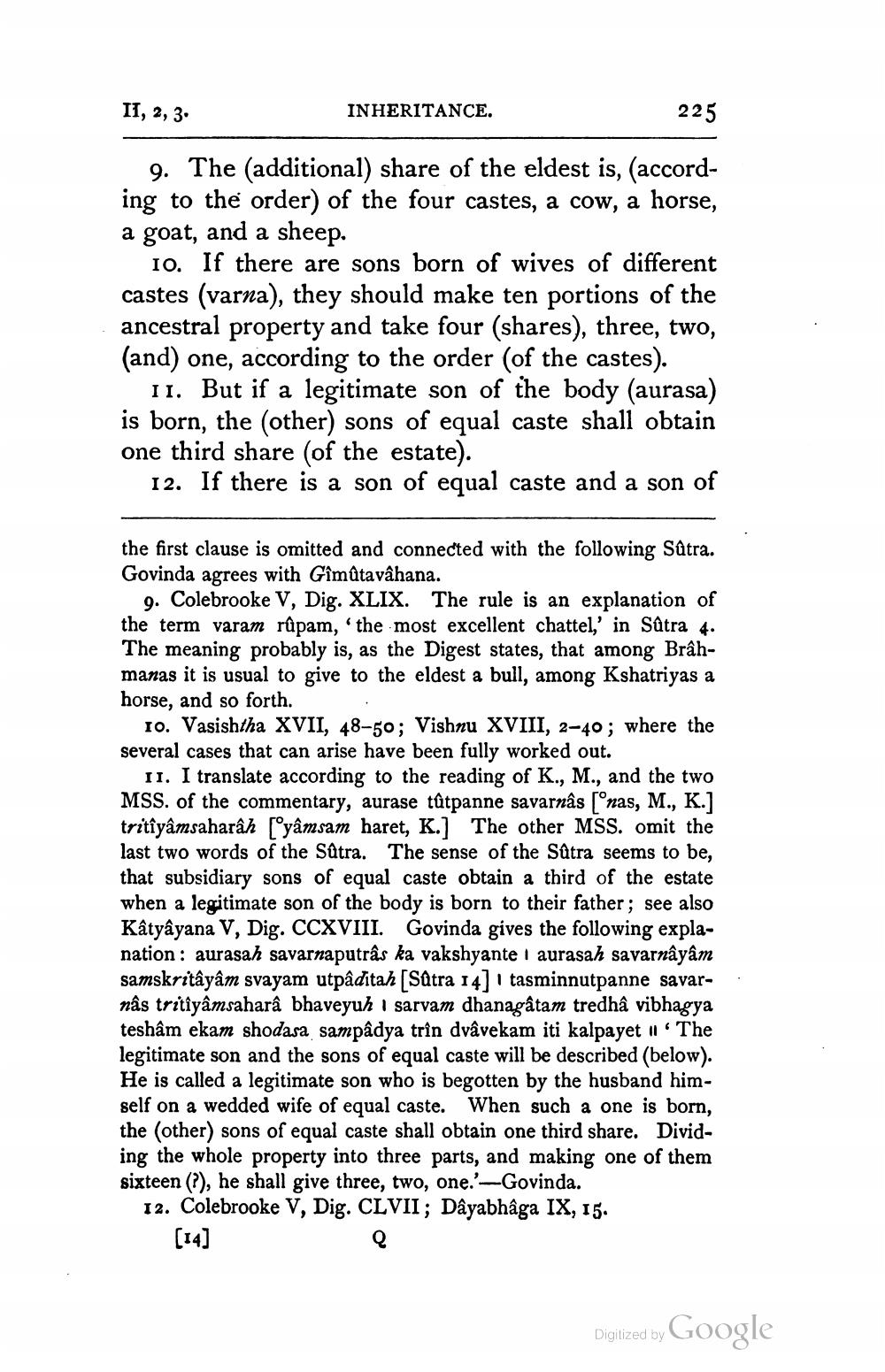________________
I1, 2, 3
INHERITANCE.
225
9. The (additional) share of the eldest is, (according to the order) of the four castes, a cow, a horse, a goat, and a sheep.
10. If there are sons born of wives of different castes (varna), they should make ten portions of the ancestral property and take four (shares), three, two, (and) one, according to the order (of the castes).
11. But if a legitimate son of the body (aurasa) is born, the (other) sons of equal caste shall obtain one third share (of the estate).
12. If there is a son of equal caste and a son of
the first clause is omitted and connected with the following Sûtra. Govinda agrees with Gîmûtavahana.
9. Colebrooke V, Dig. XLIX. The rule is an explanation of the term varam rûpam, the most excellent chattel,' in Sûtra 4. The meaning probably is, as the Digest states, that among Brâhmanas it is usual to give to the eldest a bull, among Kshatriyas a horse, and so forth.
Io. Vasishtha XVII, 48-50; Vishnu XVIII, 2-40 ; where the several cases that can arise have been fully worked out.
II. I translate according to the reading of K., M., and the two MSS. of the commentary, aurase tütpanne savarnas lonas, M., K.] tritîyâmsaharâh yâmsam haret, K. The other MSS. omit the last two words of the Sûtra. The sense of the Sūtra seems to be, that subsidiary sons of equal caste obtain a third of the estate when a legitimate son of the body is born to their father; see also Kâtyâyana V, Dig. CCXVIII. Govinda gives the following explanation: aurasah savarnaputrâs ka vakshyantei aurasah savarnâyâm samskritâyâm svayam utpâditah (Satra 147 1 tasminnutpanne savar- nâs tritiyâmsahara bhaveyuh 1 sarvam dhanagâtam tredhâ vibhagya teshâm ekam shodasa sampâdya trîn dvâvekam iti kalpayet 1. The legitimate son and the sons of equal caste will be described (below). He is called a legitimate son who is begotten by the husband himself on a wedded wife of equal caste. When such a one is born, the (other) sons of equal caste shall obtain one third share. Dividing the whole property into three parts, and making one of them sixteen (?), he shall give three, two, one.'-Govinda.
12. Colebrooke V, Dig. CLVII; Dâyabhâga IX, 15.
.
Digitized by Google




